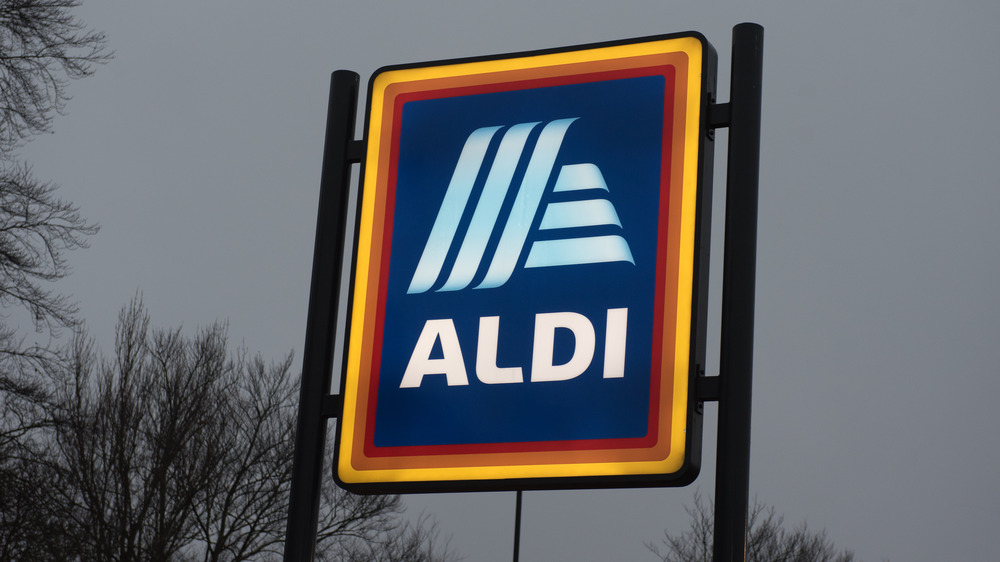The Real Reason Aldi Almost Never Offers Coupons
Grocery shopping is expensive no matter where you live. Per a Business Insider report that cites the most readily available data from the Bureau of Labor Statistics' Consumer Expenditure Surveys for the period of 2017 to 2018, the average household budget for groceries varies from state to state and city to city. For example, they note that if you live in Atlanta, an average household spends $314 a month on groceries while an average household in Seattle spends $516. If you aren't an average household, that may sound a little on the low or high end of the grocery spending budget spectrum. But either way, if you are a smart shopper and like to save a few cents here and there, then you probably get excited when you are out grocery shopping and realize you have a coupon for an item on your shopping list.
For some shoppers, being able to use a coupon is the equivalent of finding a golden ticket in a Wonka Bar. In fact, Juniper Research projects coupon redemptions will surpass $90 billion by 2022. Whether you are shopping at Whole Foods or the no-frills discount grocery store chain Aldi, it's probably safe to assume that being able to use a coupon to lower your grocery bill is a good feeling. But have you ever wondered why Aldi rarely accepts coupons? Us too.
Why Aldi usually says no to coupons
According to Spend Me Not, which cited a 2019 Coupon Intelligence Report conducted by Valassis, 92 percent of consumers have pulled coupons out of their pocketbooks at some point to enjoy the savings they offer. So why not at Aldi? Per the blog Cheapism, Aldi hasn't hopped on the coupon bandwagon because they are already working to provide the lowest prices for their customers. From time to time, you might happen upon a local coupon, most likely because of a grand opening, but at the end of the day, Aldi's pricing is generally already lower than its competitors.
The blog also points out that Aldi does not accept coupons for the national brands you might find in stock, which brings us to a big point that Taste of Home brings to our attention. The grocery chain mostly sells private labels, which allows the company to pass on the savings to its customers. The Aldi site notes that because they do not sell a large number of national brands, they do not have the hidden costs of advertising and marketing to contend with that generally get passed along to the consumer.

